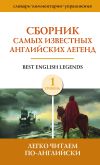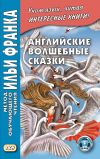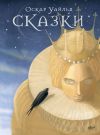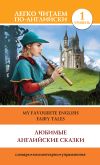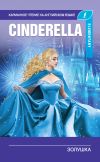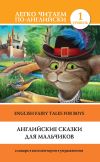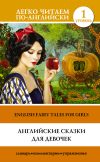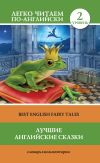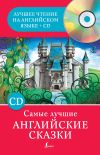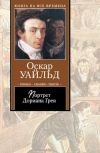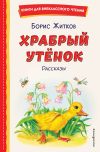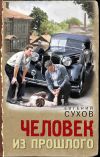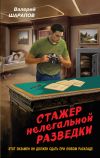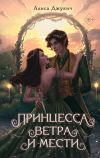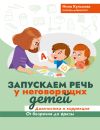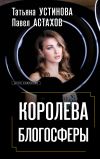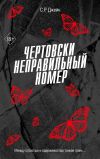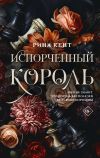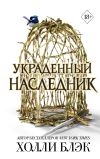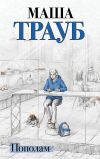Текст книги "Сказки / Fairy Tales"
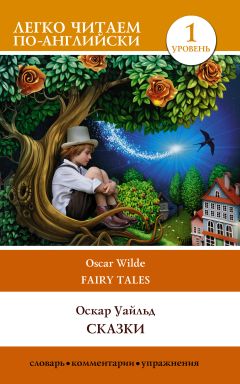
Автор книги: Оскар Уайльд
Жанр: Иностранные языки, Наука и Образование
Возрастные ограничения: +12
сообщить о неприемлемом содержимом
Текущая страница: 4 (всего у книги 8 страниц)
“Quack, quack, quack,” she said. “What a curious shape you are! May I ask were you born like that, or is it the result of an accident?”
“It is quite evident that you live in the country,” answered the Rocket, “because you don’t know who I am. However, I excuse your ignorance. It will be unfair to expect other people to be as remarkable as oneself. You will no doubt be surprised to hear that I can fly up into the sky, and come down in a shower of golden rain.”
“I don’t think that is important,” said the Duck, “as I cannot see what use it is to anyone. If you can plough the fields like the ox, or draw a cart like the horse, or look after the sheep like the dog, that is something.”
“My good creature,” cried the Rocket, “I see that you belong to the lower class. A person of my position is never useful. We have certain accomplishments, and that is more than sufficient. I don’t like to work. I don’t like to plough or draw or look after the sheep, as you recommend. Indeed, I am sure that hard work is simply the refuge of people who have nothing to do.”
“Well, well,” said the Duck, who never quarrelled with anyone, “everybody has different tastes. I hope, that you will stay here.”
“Oh! No!” cried the Rocket. “I am merely a visitor, a famous visitor. The fact is that I find this place rather tedious. There is neither society here, nor solitude. In fact, it is essentially suburban.
I shall probably go back to Court. I know that I must make a sensation in the world.”
“I entered public life once myself,” remarked the Duck; “but it did not have much effect. Now I prefer domesticity. I look after my family.”
“I like public life,” said the Rocket, “and so do all my relations, even the humblest of them. Whenever we appear we excite great attention. I did not actually appear myself, but when I do so it will be a magnificent sight. As for domesticity, it distracts one’s mind from higher things.”
“Ah! the higher things of life, how fine they are!” said the Duck; “and that reminds me how hungry I feel”.
And the Duck swam away down the stream, “Quack, quack, quack.”
“Come back! come back!” screamed the Rocket, “I have many things to say to you”.
But the Duck paid no attention to him.
“I am glad that she is away,” he said to himself, “she has a decidedly middle-class mind”.
And the Rocket sank a little deeper still into the mud. He began to think about the loneliness of genius, when suddenly two little boys in white smocks came near, with a kettle and some faggots.
“This must be the deputation,” said the Rocket, and he tried to look very important.
“Hallo!” cried one of the boys, “look at this old stick! I wonder how it came here”.
And he picked the rocket out of the ditch.
“OLD Stick!” said the Rocket, “impossible! GOLD Stick, that is what he said. Gold Stick is very complimentary. In fact, he mistakes me for one of the Court dignitaries[52]52
Court dignitaries – придворные
[Закрыть]!”
“Let us put it into the fire!” said the other boy, “it will help to boil the kettle.”
So they piled the faggots together, and put the Rocket on top, and lit the fire.
“This is magnificent,” cried the Rocket, “they will let me off in day-light, so that everyone can see me.”
“We will go to sleep now,” they said, “and when we wake up the kettle will be boiled”.
And they lay down on the grass, and shut their eyes.
The Rocket was very damp, so he took a long time to burn. At last, however, the fire caught him.
“Now I am going off!” he cried, and he made himself very stiff and straight. “I know I shall go much higher than the stars, much higher than the moon, much higher than the sun. In fact, I shall go so high that – ”
Fizz! Fizz! Fizz! and he went straight up into the air.
“Delightful!” he cried, “I shall go on like this for ever. What a success I am!”
But nobody saw him. Then he began to feel a curious sensation all over him.
“Now I will explode,” he cried. “I will set the whole world on fire. I will make such a noise that nobody will talk about anything else for a whole year!”
And he exploded. Bang! Bang! Bang! went the gunpowder. But nobody heard him, not even the two little boys, for they were asleep.
Then all that was left of him was the stick. This stick fell down on the back of a Goose near the ditch.
“Oh God!” cried the Goose. “What is it? It rain sticks”; and she rushed into the water.
“Yes, I created a great sensation. I knew that,” gasped the Rocket, and he went out.
The Nightingale and the Rose
“She will dance with me if I bring her red roses. That’s what she said,” cried the young Student; “but in all my garden there is no red rose.”
From her nest in the holm-oak tree the Nightingale heard him. She looked out through the leaves, and wondered.
“No red rose in all my garden!” he cried, and his beautiful eyes filled with tears. “Ah, happiness depends on little things! I read all the wise books, and all the secrets of philosophy are mine, yet I need a red rose, and my life is wretched.”
“Here at last is a true lover,” said the Nightingale. “I sang of him night after night, though I did not know him. I told his story to the stars night after night, and now I see him. His hair is dark as the hyacinth-blossom. His lips are red as the rose of his desire. But passion makes his face like pale ivory. Sorrow sets its seal upon his brow.”
“The Prince gives a ball tomorrow night,” murmured the young Student, “and my love will be there. If I bring her a red rose she will dance with me till dawn. If I bring her a red rose, I shall hold her in my arms. She will lean her head upon my shoulder. Her hand will be in mine. But there is no red rose in my garden. So I shall sit lonely, and she will pass me by. She will pay no attention, and my heart will break.”
“Here indeed is the true lover,” said the Nightingale. “What I sing of, he suffers. What is joy to me, to him is pain. Surely Love is a wonderful thing. It is more precious than emeralds, and dearer than fine opals. Pearls and pomegranates cannot buy it. One can’t find it in the marketplace. It may not be purchased of the merchants.”
“The musicians will sit in their gallery,” said the young Student, “and play upon their stringed instruments. My love will dance to the sound of the harp and the violin. She will dance so lightly that her feet will not touch the floor. The courtiers in their dresses will throng round her. But she will not dance with me, because I have no red rose to give her”.
He flung himself down on the grass, and buried his face in his hands, and wept.
“Why does he weep?” asked a little Green Lizard, as he ran past him with his tail in the air.
“Why, indeed?” said a Butterfly, who fluttered about after a sunbeam.
“Why, indeed?” whispered a Daisy to his neighbour, in a soft, low voice.
“For a red rose,” said the Nightingale.
“For a red rose?” they cried; “how very ridiculous!”
And the little Lizard, who was a cynic, laughed outright.
But the Nightingale understood the secret of the Student’s sorrow. She sat silent in the oak-tree, and thought about the mystery of Love.
Suddenly she spread her brown wings for flight, and soared into the air. She passed through the grove like a shadow. Like a shadow, she sailed across the garden.
In the centre of the grass-plot there was a beautiful Rose-tree. When she saw it she flew over to it.
“Give me a red rose,” she cried, “and I will sing you my sweetest song.”
But the Tree shook its head.
“My roses are white,” it answered; “as white as the foam of the sea. Whiter than the snow upon the mountain. But go to my brother who grows round the old sun-dial. Perhaps he will give you what you want.”
So the Nightingale flew over to the Rose-tree that grew round the old sun-dial.
“Give me a red rose,” she cried, “and I will sing you my sweetest song.”
But the Tree shook its head.
“My roses are yellow,” it answered; “as yellow as the hair of the mermaiden who sits upon an amber throne. Yellower than the daffodil that blooms in the meadow before the mower comes with his scythe. But go to my brother who grows beneath the Student’s window. Perhaps he will give you what you want.”
So the Nightingale flew over to the Rose-tree that grew beneath the Student’s window.
“Give me a red rose,” she cried, “and I will sing you my sweetest song.”
But the Tree shook its head.
“My roses are red,” it answered, “as red as the feet of the dove. Redder than the great fans of coral that wave and wave in the ocean-cavern. But the winter chilled my veins, and the frost nipped my buds, and the storm broke my branches. I have no roses at all.”
“One red rose is all I want,” cried the Nightingale, “only one red rose! How to get it?”
“There is a way,” answered the Tree; “but it is so terrible that I dare not tell it to you.”
“Tell it to me,” said the Nightingale, “I am not afraid.”
“If you want a red rose,” said the Tree, “you must build it out of music by moonlight, and stain it with your own heart’s-blood. You must sing to me with your breast against a thorn. All night long you must sing to me. The thorn must pierce your heart. Your life-blood must flow into my veins, and become mine.”
“Death is a great price to pay for a red rose,” cried the Nightingale, “and Life is very dear to all. It is pleasant to sit in the green wood, and to watch the Sun in his chariot of gold, and the Moon in her chariot of pearl. The scent of the hawthorn is sweet. The bluebells that hide in the valley, and the heather that blows on the hill are also sweet. Yet Love is better than Life. What is the heart of a bird compared to the heart of a man?”
So she spread her brown wings for flight, and soared into the air. She swept over the garden like a shadow, and like a shadow she sailed through the grove.
The young Student was still on the grass. The tears were not yet dry in his beautiful eyes.
“Be happy,” cried the Nightingale, “be happy. You will have your red rose. I will build it out of music by moonlight, and stain it with my own heart’s-blood. All that I ask of you in return is that you will be a true lover. Love is wiser than Philosophy, though it is wise. Love is mightier than Power, though it is mighty. Its wings are flame-coloured. Its body is coloured like flame. Its lips are sweet as honey. Its breath is like frankincense.”
The Student looked up from the grass, and listened. He did not understand what the Nightingale said. He only knew the things that are written down in books.
But the Oak-tree understood, and felt sad. It liked little Nightingale who built her nest in his branches very much.
“Sing me one last song,” he whispered; “I shall feel very lonely when you are gone.”
So the Nightingale sang to the Oak-tree. Her voice was like water from a silver jar.
Then she finished her song. The Student got up, and pulled a note-book and a lead-pencil out of his pocket.
“She has form,” he said to himself, as he walked away through the grove. “I can’t deny that. But has she got feeling? I am afraid not. In fact, she is like most artists. She is all style, without any sincerity. She won’t sacrifice herself for others. She thinks merely of music. Everybody knows that the arts are selfish. Still, she has some beautiful notes in her voice. What a pity it is that they do not mean anything.”
And he went into his room, and lay down on his little pallet-bed. He began to think of his love; and, after a time, he fell asleep.
When the Moon shone in the heavens the Nightingale flew to the Rose-tree, and set her breast against the thorn. All night long she sang with her breast against the thorn. The cold crystal Moon leaned down and listened. All night long she sang, and the thorn went deeper and deeper into her breast, and her life-blood ebbed away from her.
She sang first of the birth of love in the heart of a boy and a girl. And on the topmost spray of the Rose-tree there blossomed a marvelous rose. At first, it was pale, as the mist that hangs over the river. Pale as the feet of the morning, and silver as the wings of the dawn. As the shadow of a rose in a mirror of silver, as the shadow of a rose in a water-pool, so was the rose that blossomed on the topmost spray of the Tree.
The Tree cried to the Nightingale to press closer against the thorn.
“Press closer, little Nightingale,” cried the Tree, “or the Day will come before the rose is finished.”
So the Nightingale pressed closer against the thorn. Her song grew louder and louder. She sang of the birth of passion in the soul of a man and a maid.
And a delicate flush of pink came into the leaves of the rose, like the flush in the face of the bridegroom when he kisses the lips of the bride. But the thorn did not reached her heart, so the rose’s heart remained white. Only a Nightingale’s heart’s-blood can crimson the heart of a rose.
The Tree cried to the Nightingale to press closer against the thorn.
“Press closer, little Nightingale,” cried the Tree, “or the Day will come before the rose is finished.”
So the Nightingale pressed closer against the thorn. The thorn touched her heart. A fierce pang of pain shot through her. The pain was bitter and bitter, her song grew wilder and wilder. She sang of the Love that does not die in the tomb.
And the marvellous rose became crimson, like the rose of the eastern sky. The girdle of petals was crimson, and the heart was crimson as a ruby.
The Nightingale’s voice grew fainter. Her little wings began to beat. A film came over her eyes. Her song grew fainter and fainter, and she felt something in her throat.
Then she gave one last burst of music. The white Moon heard it, and she forgot the dawn, and lingered on in the sky. The red rose heard it, and it trembled all over with ecstasy. The rose opened its petals to the cold morning air. Echo bore it to her purple cavern in the hills, and woke the shepherds from their dreams. It floated through the reeds of the river, and they carried its message to the sea.
“Look, look!” cried the Tree, “the rose is finished now”.
But the Nightingale did not answer. She was dead in the long grass, with the thorn in her heart.
At noon the Student opened his window and looked out.
“Oh, what luck!” he cried; “here is a red rose! It is so beautiful that I am sure it has a long Latin name”.
He leaned down and plucked it. Then he put on his hat, and ran up to the Professor’s house with the rose in his hand.
The daughter of the Professor sat in the doorway, with her little dog at her feet.
“You will dance with me if I bring you a red rose. That’s what you said,” cried the Student. “Here is the reddest rose in all the world. You will wear it tonight next your heart. When we dance together it will tell you how I love you.”
But the girl frowned.
“I am afraid it will not go with my dress[53]53
it will not go with my dress – она не подойдёт к моему платью
[Закрыть],” she answered; “and, besides, the Chamberlain’s nephew sent me some real jewels. Everybody knows that jewels cost far more than flowers.”
“Well, you are very ungrateful,” said the Student angrily.
He threw the rose into the street, where it fell into the gutter, and a cart-wheel went over it.
“Ungrateful!” said the girl. “Listen, you are very rude. After all, who are you? Only a Student. I don’t believe you have even got silver buckles to your shoes as the Chamberlain’s nephew has”.
The girl got up from her chair and went into the house.
“What a silly thing Love is,” said the Student as he walked away. “It is not half as useful as Logic. Love does not prove anything, it tells of things that won’t happen. It makes one believe things that are not true. In fact, it is quite unpractical. As this century is very practical, I shall go back to Philosophy and study Metaphysics.”
So he returned to his room and pulled out a great dusty book, and began to read.
The Young King
It was the night before the day of his coronation. The young King sat alone in his beautiful chamber. His courtiers bowed their heads to the ground, according to the ceremony, and retired to the Great Hall of the Palace, to receive a few last lessons from the Professor of Etiquette.
The lad – for he was only a lad, sixteen years old – was not sorry at their departure. He sat on the soft cushions of his embroidered couch with wild eyes, like a Faun, or some young animal from the forest whom the hunters snared.
And, indeed, it was the hunters who found him one day. The child of the old King’s daughter. His father was a stranger, who made the young Princess love him. But some people spoke of an artist from Rimini, to whom the Princess showed much honour. That artist suddenly disappeared from the city, and left his work in the Cathedral unfinished. They stole the lad from his mother, as she slept. Then they gave him into the charge of a peasant and his wife, who were without children of their own. These peasants lived in a remote part of the forest, more than a day’s ride from the town.
Soon grief, or the plague, as the court physician stated, slew the lad’s mother, The servants lowered the body of the Princess into an open grave in a deserted churchyard, beyond the city gates.
Such was the story that men whispered to each other. So the old King, on his deathbed, sent for the lad, and, in the presence of the Council, acknowledged him as his heir.
A cry of pleasure broke from the lad’s lips when he saw the delicate raiment and rich jewels. He flung aside his rough leathern tunic and coarse sheepskin cloak with fierce joy. He found himself in a new world. He liked to run down the great staircase, with its lions of gilt bronze and its steps of bright porphyry. He liked to wander from room to room, and from corridor to corridor.
Upon these journeys, the slim, fair-haired Court pages accompanied him; but more often he was alone.
People related many curious stories about him. For example, a stout Burgomaster saw him in real adoration before a picture from Venice. That seemed to herald the worship of some new gods. On another occasion the servants discovered him in a little chamber in one of the northern turrets of the palace. He gazed, as one in a trance, at a Greek gem with the figure of Adonis. He liked to press his warm lips to the marble brow of an antique statue. He passed a whole night and watched the effect of the moonlight on a silver image of Endymion.
All rare and costly materials attracted him. In his eagerness to procure them he liked to sent away many merchants, some to Egypt, some to Persia, and others to India to buy gems, carpets, gauze and stained ivory, moonstones and bracelets of jade, sandal-wood and blue enamel and shawls of fine wool.
But what occupied him most was the robe he wore at his coronation. It was the robe of tissued gold[54]54
tissued gold – тканое золото
[Закрыть], and the ruby-studded crown, and the sceptre with its rows and rings of pearls. He thought of them tonight, as he lay back on his luxurious couch and watched the great pinewood log that on the open hearth.
The most famous artists submitted to him the designs. He saw himself at the high altar of the cathedral in the raiment of a King. A smile played and lingered about his boyish lips. It lit up with a bright lustre his dark woodland eyes.
After some time he rose from his seat, and looked round at the dim room. There were rich tapestries with the Triumph of Beauty on the walls. A large wardrobe filled one corner, and a curiously wrought cabinet stood by the window. Narcissus in green bronze held a polished mirror above its head. A bowl of amethyst stood on the table.
Outside he saw the huge dome of the cathedral. It was like a bubble over the shadowy houses. Far away, in an orchard, a nightingale began to sing. A faint perfume of jasmine came through the open window. The lad took up a lute. His fingers strayed across the cords. His heavy eyelids drooped, and a strange languor came over him. He felt the magic and the mystery of beautiful things.
When midnight sounded from the clock-tower he touched a bell. His pages entered and disrobed him with ceremony. Then he fell asleep. And as he slept he dreamed a dream, and this was his dream.
He was standing in a long, low attic, amidst the whir and clatter of many looms. The meager daylight peered in through the windows. It showed him the gaunt figures of the weavers. Pale, sickly-looking[55]55
sickly-looking – болезненно выглядевшие
[Закрыть] children sat on the huge crossbeams[56]56
crossbeams – поперечины станков
[Закрыть]. They pressed the threads together. Their faces were pinched with famine. Their thin hands shook and trembled. Some haggard women sat at a table. A horrible odour filled the place. The air was foul and heavy. The walls dripped and streamed with damp.
The young King went over to one of the weavers. He stood by him and watched him.
The weaver looked at him angrily, and said,
‘Why do you watch me? Are you a spy? The master sent you, did he?’
‘Who is your master?’ asked the young King.
‘Our master!’ cried the weaver, bitterly. ‘He is a man like myself. Indeed, there is some difference between us: he wears fine clothes while I wear rags. And I am weak from hunger while he suffers from gluttony.’
‘The land is free,’ said the young King, ‘and you are not a slave.’
‘In war,’ answered the weaver, ‘the strong make slaves of the weak. In peace the rich make slaves of the poor. We must work to live. They give us such mean wages that we die. We toil for them all day long. They heap up gold in their coffers, and our children die. The faces of those we love become hard and evil. We tread out the grapes, and another drinks the wine. We sow the corn, and our own board is empty. We have chains, though no eye beholds them. We are slaves, though men call us free.’
‘Is it so with all?’ the young King asked.
‘It is so with all,’ answered the weaver, ‘with the young as well as with the old. With the women as well as with the men. With the little children as well as with the old men. The merchants rob us, and we must agree. The priest rides by and says prayers, and nobody cares. Poverty with her hungry eyes creeps through our sunless lanes. Sin with his sodden face follows her. Misery wakes us in the morning. Shame sits with us at night. But what are these things to you? You are not one of us. Your face is happy.’
He turned away, and threw the shuttle across the loom. The young King saw that it was threaded with a thread of gold. A great terror seized upon him. He said to the weaver,
‘What robe is this?’
‘It is the robe for the coronation of the young King,’ he answered; ‘what is that to you?’
The young King gave a loud cry and woke, and lo! he was in his own chamber. Through the window he saw the moon in the dusky air.
He fell asleep again and dreamed, and this was his dream.
He was on the deck of a huge galley. A hundred slaves rowed it. The master of the galley sat on a carpet by his side. He was black as ebony. His turban was of crimson silk. Great earrings of silver dragged down the thick lobes of his ears. In his hands he had a pair of ivory scales.
The slaves were naked, they had ragged loin-clothes only. Each man was chained to his neighbour. The hot sun beat brightly upon them. The Negroes ran up and down the gangway and lashed them with whips of hide. They stretched out their lean arms and pulled the heavy oars through the water. The salt spray flew from the blades.
At last they reached a little bay. Three Arabs on wild asses rode out and threw spears at them. The master of the galley took a bow in his hand and shot one of them in the throat. He fell heavily into the surf, and his companions galloped away. A woman in a yellow veil followed slowly on a camel.
They cast anchor and hauled down the sail. The Negroes brought up a long rope-ladder. The master of the galley threw it over the side. Then the Negroes seized the youngest of the slaves and knocked his gyves off. Then they filled his nostrils and his ears with wax, and tied a big stone round his waist. He crept wearily down the ladder, and disappeared into the sea. A few bubbles rose where he sank. Some of the other slaves peered curiously over him.
After some time the diver rose up out of the water. He clung to the ladder with a pearl in his right hand. The Negroes seized it from him, and thrust him back. The slaves fell asleep over their oars.
Again and again he came up, and each time he brought him a beautiful pearl. The master of the galley weighed them, and put them into a little bag of green leather.
The young King tried to speak, but his lips refused to move. The Negroes chattered to each other, and began to quarrel over a string of bright beads. Two cranes flew round and round the vessel.
Then the diver came up for the last time. His last pearl was the most beautiful. It was shaped like the full moon. It was whiter than the morning star. But his face was strangely pale. As he fell upon the deck the blood gushed from his ears and nostrils. He quivered for a little, and then he was still. The Negroes shrugged their shoulders, and threw the body overboard.
The master of the galley laughed, and took the pearl. When he saw it he pressed it to his forehead and bowed.
‘It will be,’ he said, ‘for the sceptre of the young King.’
He made a sign to the Negroes to draw up the anchor.
When the young King heard this he gave a great cry, and woke. Through the window he saw the long grey fingers of the dawn.
And he fell asleep again, and dreamed, and this was his dream.
He wandered through a dim wood with strange fruits and beautiful poisonous flowers. The adders hissed at him as he went by. The bright parrots flew from branch to branch. Huge tortoises lay asleep upon the hot mud. The trees were full of apes and peacocks.
He reached the outskirts of the wood. There he saw many men in the dried-up[57]57
dried-up – высохший
[Закрыть] river. They swarmed up the crag like ants. They dug deep pits in the ground and went down into them. Some of them cleft the rocks with great axes; others grabbled in the sand.
They tore up the cactus by its roots, and trampled on the scarlet blossoms. They hurried, and no man was idle.
From the darkness of a cavern Death and Avarice watched them. Death said,
‘I am weary; give me some people and let me go.’
But Avarice shook her head.
‘They are my servants,’ she answered.
And Death said to her,
‘What is there in your hand?’
‘I have three grains of corn,’ Avarice answered; ‘why do you ask?’
‘Give me one of them,’ cried Death, ‘to plant in my garden. Only one of them, and I will go away.’
‘I will not give you anything,’ said Avarice, and she hid her hand in the fold of her raiment.
Death laughed, and took a cup, and dipped it into a pool of water, and out of the cup rose Ague. She passed through the people, and every third man lay dead. A cold mist followed her, and the water-snakes ran by her side.
When Avarice saw that every third man was dead she wept. She cried aloud,
‘You killed my servants!’ she cried, ‘go away! There is war in the mountains of Tartary. The kings call you. The Afghans killed the black ox, and march to battle. They beat upon their shields with their spears, and put on their helmets of iron. What is my valley to you? Go away, and come here no more.’
‘No,’ answered Death, ‘I will not go till you give me a grain of corn.’
But Avarice shut her hand, and clenched her teeth,
‘I will not give you anything,’ she muttered.
Death laughed, and took up a black stone, and threw it into the forest. Out of a thicket of wild hemlock came Fever in a robe of flame. She passed through the people, and touched them. Each man that she touched died. The grass withered beneath her feet as she walked.
Avarice shuddered, and put ashes on her head.
‘You are cruel,’ she cried; ‘you are cruel. There is famine in the cities of India, and the cisterns of Samarcand are dry. There is famine in the cities of Egypt, and the locusts came up from the desert. The Nile overflows its banks, and the priests curse Isis and Osiris. Go away to those who need you, and leave me my servants.’
‘No,’ answered Death, ‘I will not go till you give me a grain of corn.’
‘I will not give you anything,’ said Avarice.
Death laughed again, and whistled through fingers. A woman flew through the air. Plague was written upon her forehead. A crowd of lean vultures wheeled round her. She covered the valley with her wings, and no man was left alive.
Avarice fled through the forest, and Death leaped upon the red horse and galloped away – faster than the wind.
Out of the slime at the bottom of the valley crept dragons and horrible creatures. The jackals with big nostrils came along the sand.
The young King wept, and said:
‘Who were these men, and what did they look for?’
‘For rubies for a king’s crown,’ answered one who stood behind him.
The young King turned round, and saw a pilgrim. The pilgrim held a mirror of silver in his hand. The young King grew pale, and said:
‘For what king?’
The pilgrim answered:
‘Look in this mirror, and you will see him.’
The young King looked in the mirror and saw his own face. He cried and woke. The bright sunlight streamed into the room. He heard the songs of the birds from the trees of the garden.
The Chamberlain and the officers came in and bowed to him. The pages brought him the robe of tissued gold, and set the crown and the sceptre before him.
The young King looked at them. They were very beautiful. The most beautiful robe, crown and sceptre in the world. But he remembered his dreams, and he said to his lords:
‘Take these things away. I will not wear them.’
The courtiers were amazed. Some of them laughed, because they thought it was a joke.
But he looked sternly at them, and said:
‘Take these things away, and hide them from me. Though it is the day of my coronation, I will not wear them. My robe was woven on the loom of Sorrow, and by the white hands of Pain. There is Blood in the heart of the ruby, and Death in the heart of the pearl.’
And the young King told them his three dreams.
When the courtiers heard them they looked at each other and whispered:
‘Surely he is mad. What is a dream but a dream – what is a vision but a vision? They are not real things. What will we do with the lives of those who toil for us? Is it necessary not to eat bread till we see sower? Is it necessary not to drink wine till we talk with the vinedresser?’
The Chamberlain told the young King,
‘My lord, please set aside these black thoughts of yours. Put on this fair robe, and set this crown upon your head. How will the people know that you are a king, if you don’t have a king’s raiment?’
Правообладателям!
Это произведение, предположительно, находится в статусе 'public domain'. Если это не так и размещение материала нарушает чьи-либо права, то сообщите нам об этом.